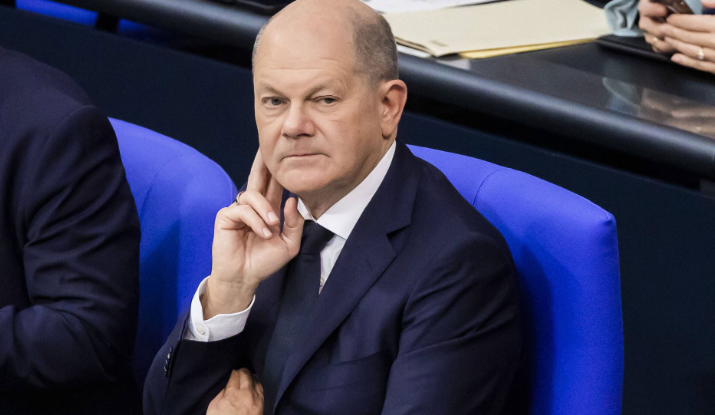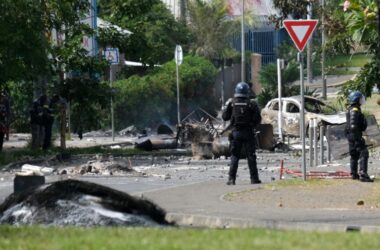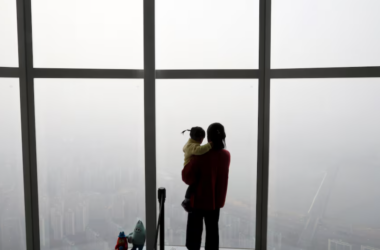Germany, long viewed as Europe’s “anchor of stability,” now finds itself grappling with an increasingly fractious and dysfunctional government. The coalition led by Chancellor Olaf Scholz, comprising his center-left Social Democratic Party (SPD), the pro-business Free Democrats (FDP), and the environmentally focused Greens, is once again at war with itself. Despite Scholz’s recent declarations that his government would focus on serving the people rather than indulging in internal disputes, the coalition’s unity has shattered, with the FDP at the forefront of a renewed civil war.
This latest conflict wasn’t sparked by the coalition’s stance on pressing international issues like the Middle East or Russia. Instead, it revolves around a topic even closer to the hearts of many Germans: the automobile. The FDP, increasingly desperate as its support base dwindles to just 5 percent in the polls—barely above the threshold needed to remain in parliament—has launched a provocative campaign to bolster its fading fortunes. Their strategy? Position themselves as the defenders of car owners’ rights against what they label as the “anti-car agenda” of their coalition partners.
The FDP’s bold proposals include making parking in city centers free, reducing bike lanes, and even lowering the driving age from 18 to 16. Such moves directly oppose the policies championed by the Greens, who view environmental sustainability as a cornerstone of their platform. The FDP’s pro-car push appears calculated to infuriate their coalition partners and rally support from traditional motorists, many of whom feel increasingly alienated by the Greens’ environmental agenda.
But this is just the tip of the iceberg. In what looks like a broader strategy to distance themselves from their coalition partners, the FDP has also called for cuts to welfare programs and the elimination of Germany’s development ministry, which oversees foreign aid. These proposals have not only enraged the SPD and Greens but have also further destabilized the government. The development ministry proposal, in particular, has been met with fierce resistance, with critics accusing the FDP of undermining Germany’s commitment to global peace and humanitarian efforts.
It’s clear that the FDP’s actions are driven by political survival instincts. Facing potential electoral disaster in the upcoming regional elections in eastern Germany, where the FDP is unlikely to secure any seats, the party is desperately seeking to differentiate itself from its coalition partners. The party’s leader, Christian Lindner, who also serves as Germany’s finance minister, has openly questioned the constitutionality of a budget compromise he himself helped negotiate just weeks ago. This sudden about-face has sparked outrage from Scholz and his SPD colleagues, who are baffled by Lindner’s willingness to jeopardize the government’s stability for short-term political gain.
As tensions escalate, speculation is growing that the FDP may be preparing to pull out of the coalition altogether or provoke its collapse in hopes of salvaging its electoral prospects. While such a move might temporarily boost the FDP’s fortunes, it could also plunge Germany into deeper political chaos at a time when stable leadership is desperately needed.
The reality is that Germany’s current coalition is more divided than ever. The SPD and Greens are struggling in the polls, and the FDP’s aggressive posturing risks further alienating voters. As the coalition partners continue to clash, the question is not whether this government will collapse, but when. For a country that has long prided itself on political stability, the disintegration of Scholz’s government is a troubling sign of the challenges ahead.
Germany, once the beacon of stability in Europe, now finds itself embroiled in political turmoil. The current coalition’s unraveling is not just a domestic issue but a warning to Europe and the world that even the most stable democracies can falter when internal divisions go unchecked. The coming months will determine whether Scholz’s government can survive this onslaught or if Germany will be forced to navigate yet another political crisis.








